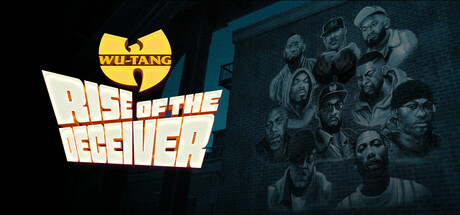Wu-Tang Clan's Gaming Odyssey: Rebellion in Pixels or Conformity Unleashed?
Explore Wu-Tang Clan's venture into gaming with 'Wu-Tang: Rise Of The Deceiver.' Is it a bold statement or a step into commercial assimilation?


In a world where the allure of pop conformity often overshadows genuine artistic expression, the Wu-Tang Clan’s foray into the gaming industry with 'Wu-Tang: Rise Of The Deceiver' serves as both a bold statement and a critical commentary on the state of the creative landscape. Known for their lyrical prowess and cultural influence, Wu-Tang’s leap into the digital realm might seem like a natural progression, but it also raises questions about how even the most rebellious art forms can be assimilated into mainstream channels.
A New Digital Playground
Wu-Tang’s announcement of their video game is laced with intrigue, inviting fans to explore the group’s universe in a brand-new format. While the game is touted as a ‘love letter to hip-hop culture,’ critics might wonder if this is yet another instance of the industry packaging rebellion for wider commercial consumption. Is this project a genuine extension of Wu-Tang’s artistic legacy, or is it a step into the kind of cultural commodification they once stood against?

The Corporate Game
Let’s not ignore the very real possibility that this move into gaming could, ironically, tether Wu-Tang to the very commercial forces they've historically avoided. While the game promises an immersive experience, one has to ask if the true essence of Wu-Tang’s gritty, revolutionary edge can coexist with the sanitized environments often required by mainstream gaming platforms. There’s a certain irony in rebellion becoming a marketable commodity, neatly tucked into a digital format for mass consumption.
Beyond the Beats and Graphics
For true aficionados, 'Wu-Tang: Rise Of The Deceiver' will be a test of how deeply the Clan’s ethos can penetrate a medium often criticized for its lack of genuine cultural depth. This isn’t just a game; it’s a cultural event that holds up a mirror to the industry, reflecting how it shapes—and sometimes distorts—the narratives of its icons. As Wu-Tang steps onto this new stage, they challenge the gaming world to accommodate their raw artistic vision or risk watering it down.

The Balancing Act
It’s a delicate dance between maintaining artistic integrity and embracing new methods of engaging with fans. Wu-Tang’s digital venture could either reinforce their legendary status or expose the pitfalls of aligning too closely with commercial appetites. Are they setting a new precedent for artistic reach, or simply joining the ranks of those who have traded edge for wider acceptance?
The Final Boss
As anticipation builds for the release of 'Wu-Tang: Rise Of The Deceiver,' fans and critics alike will be watching to see if the essence of Wu-Tang can infiltrate and elevate a medium often devoid of cultural authenticity. Will the game capture the rebellious spirit of the group that refused to be boxed in, or will it signal a departure from their roots? Ultimately, this venture is a call to examine the intersection of art and commerce, challenging us to question where true rebellion lies in the digital age.




